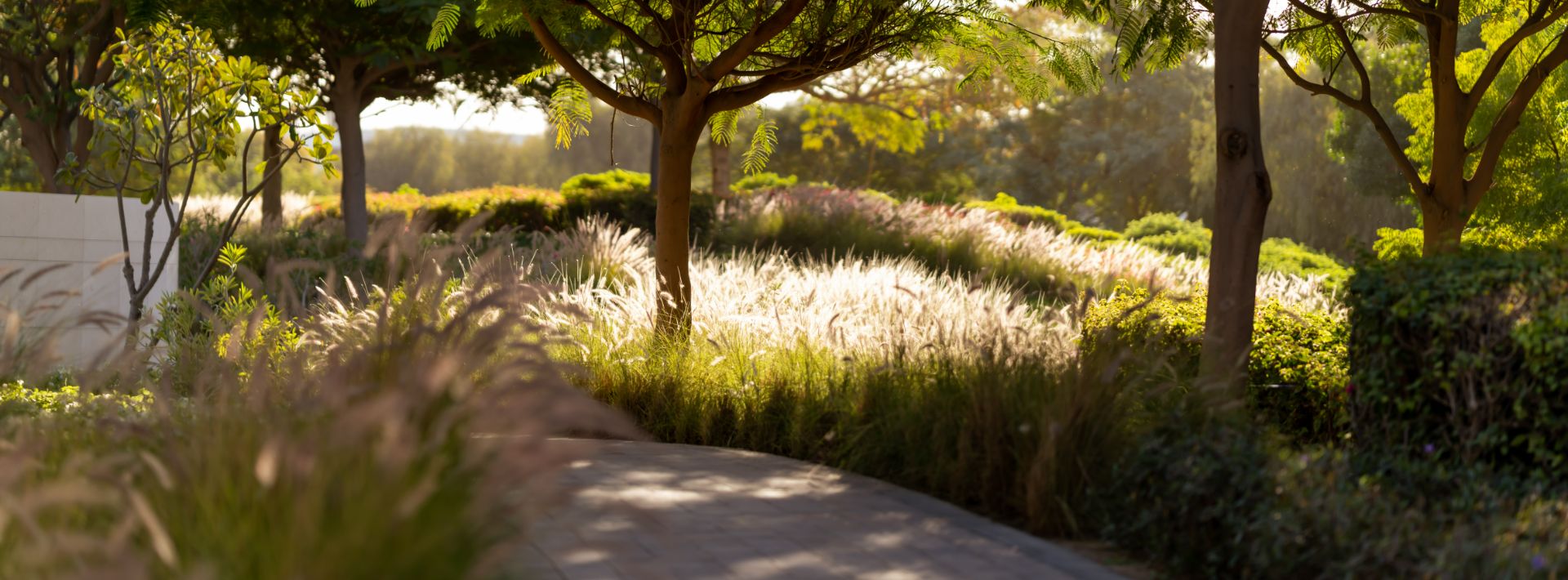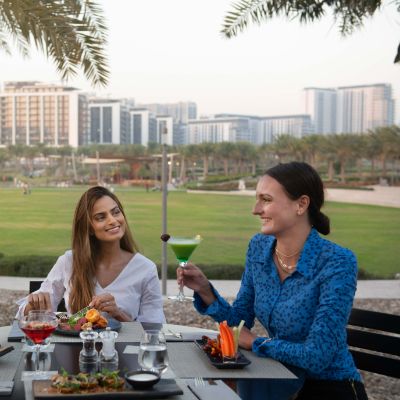Dubai Hills Estate features miles and miles of walking and cycling trails that carve their way throughout the master community. Enveloped by greenery and beautiful landscaping on all sides, the pathways offer adventurous spirits the chance to explore their vast neighbourhood. Benches and shaded spots allow explorers to get some rest along the way, allowing for a moment to sit back and revel in the community’s natural beauty.
Some of the most common species in your community include:
1. Azadirachta indica, more popularly known as neem, is an evergreen tree that thrives in tropical and semi-tropical regions. The tree grows quickly, reaching heights of over 130 feet.
2. Acacia farnesiana, or the needle bush, is a hardy shrub that produces vibrant and thrives in dry conditions. The flowers contain essential oils used for Mediterranean perfumes.
3. Milingtonia hortensis, better known as the jasmine tree, is a versatile evergreen with ‘feather’-like leaves that bear a striking resemblance to the neem’s. The tree puts on an eye-catching display during the flowering season, with an abundance of fragrant white flowers.
4. Prosopis cineraria, or the ghaf tree, is a drought-resistant evergreen from the pea family. The tree is highly valued by Indians and Emiratis, and was adopted as the national tree of the United Arab Emirates in 2008.
5. Olea europea, popularly called the olive tree, is yet another evergreen with strong drought-tolerance. The tree has an average lifespan of 500 years, with several of these trees even surpassing 2,000 years.
6. Phoenix dactilifera, commonly known as the date palm, is also an evergreen featuring the iconic crown of 100-120 arching slender branches, called fronds. The trees are ideal for hot and dry conditions, and are native to the Arabian peninsula.






